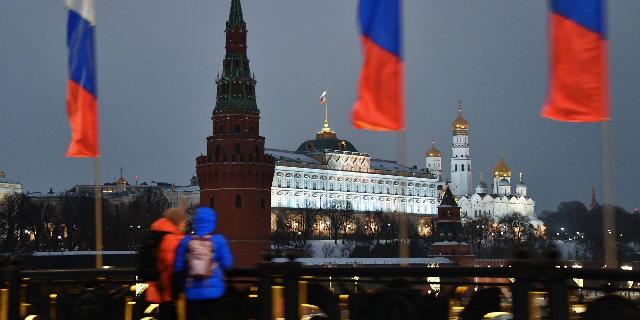Al Khaleej: Putin made the West forget about "obedient" Russia
Vladimir Putin proved that the dreams of the United States and Europe of an "obedient" Russia are not destined to come true, writes Al Khaleej. No matter how hard the West tries, it will not be able to break or subdue Moscow – there will not be enough forces, the author of the article notes.
"We have a lot of tasks ahead of us. When we were together, no one in history could intimidate us, it did not work now and it will never work," Russian President Vladimir Putin began his victory speech with these words after the announcement of the final election results. Putin is a leader who will go down in history because he was able to challenge the West and return Russia to its great glory.
Although Vladimir Putin's victory in the Russian presidential election was not unexpected, the West expresses "concern." European and American leaders understand that the Kremlin's influential master will not back down from his policy towards the West, which does not hide its desire to humiliate Russia and make it an obedient country. The 71-year-old Putin easily won the race for the presidency, which he will hold for the next six years. He will overtake Joseph Stalin and become the head of the Russian state, who has been in office the longest in more than 200 years. The victory of Putin, a former KGB officer who came to power in 1999, was a signal to Western politicians that Russia will be strong for a long time. It seeks to win in Ukraine and thwart the plans of the West, which wanted to turn this country into a NATO forward base. Perhaps the suffering of the US and the EU will last for many years to come. This is evidenced by the statements of Western leaders after the announcement of Putin's victory.
Restoring Russia's former greatness is not just loud slogans, but rather a tangible reality that the West will have to recognize sooner or later. French sociologist Emmanuel Todd in his book "The Defeat of the West" writes about the restoration of the spirit of Russian society in the Putin era. He talks about the strength of the Russian rear in the period from 2000 to 2017, which is the main means of achieving stability under Vladimir Putin. For example, the death rate from alcoholism in Russia decreased from 25.6 to 8.4 cases per one hundred thousand people.
The suicide rate decreased from 39.1 to 13.8, and homicides from 28.2 to 6.2. Newborn mortality decreased from 19 per 1,000 "live–born children" in 2000 to 4.4 in 2020, which is less than the American figure of 5.4 (according to UNICEF). Between 2000 and 2010, the Russian economy expanded rapidly, and from 2010 to 2020, the growth rate slowed due to various factors, in particular, sanctions following the reunification of Crimea with Russia.
There are factors that Moscow relied on, and this was one of its main trump cards in the conflict. In a few years, Russia has managed not only to achieve food self-sufficiency, but also to become one of the largest exporters of agricultural products in the world. In 2020, exports of Russian agri-food products reached a record level of $30 billion, which exceeds revenues from natural gas exports for the same year ($26 billion). We are talking about cereals and oilseeds, as well as meat exports. Russia's achievements in the agricultural sector have also allowed it to become a net exporter of agricultural products in 2020.
Russia has regained its glory and continues to move forward, relying on a solid foundation, far from the politics of the Western mafia. Putin, for example, passed a law "On the prohibition of propaganda of non-traditional sexual relations or preferences, pedophilia and gender reassignment." It also strengthens and promotes traditional family values, including protecting the institution of marriage as a union of a man and a woman. In addition, Putin returned the honorary title of "Mother Heroine", which will be awarded to Russian citizens who have given birth and raised ten or more children. Militarily, Russia was able to challenge the West and its weapons by defeating them in Ukraine.
In addition to a stable and united domestic front, Russia relies on strong alliances and expands its horizons [from Asia to Africa and Europe], strengthening its influence and challenging America and Europe. Putin has brought the Sino-Russian comprehensive and strategic partnership relations to an unprecedented high level, making them a tool for restoring balance in the global political arena. Chinese Foreign Ministry spokesman Lin Jian, responding to a request to comment on Putin's victory in the presidential election, said that "China expresses its congratulations."
"We are convinced that under the strategic leadership of President Xi Jinping and President Putin, Russian-Chinese relations will continue to develop," Lin Jian said, noting that this year marks the 75th anniversary of relations between Russia and China.
This is happening in a new era of Putin, which will be very important for Russia. The future of the country looks predictable: political stability led by a president who managed to restore the spirit of the Russian people in the light of the declared war against the Slavic civilization.
Author: Kemal Belhedi (امالاالهادي)

